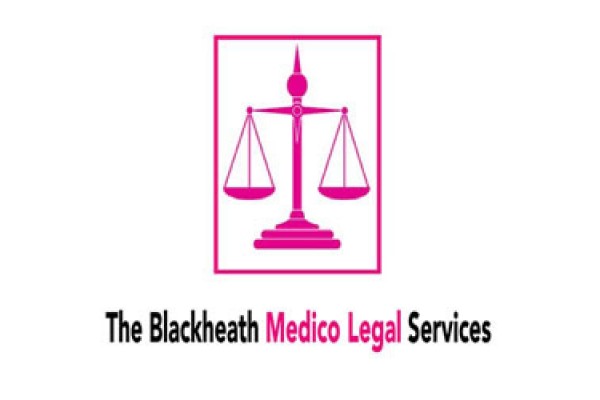Description
The Blackheath Medico Legal Services
Blackheath Medico Legal Services is a gradually expanding panel of experienced physiotherapy clinicians who can provide opinions on a range of clinical areas for civil matters.
It was established five years ago by Zena Schofield, Chartered Physiotherapist. Zena has over twenty years experience providing reports for the legal profession in both civil and criminal areas. In 1997 she was co-founder of The Medico Legal Association of Chartered Physiotherapists and has lectured to lawyers and physiotherapists on medico-legal issues.
Prior to this, as Chair of the leading post-graduate educational group within physiotherapy – the Manipulation Association of Chartered Physiotherapists, Zena oversaw the launch in the early 1990’s of the first European Master’s degree course in Manipulative Studies and negotiated the publication of a peer reviewed scientific journal – Manual Therapy – now subscribed to worldwide by several thousand clinicians.
Blackheath Medico Legal Services panel of experts can provide opinions on a range of areas including within musculo-skeletal and neurological conditions including adult and paediatric neurological disorders, work related and manual handling problems, whiplash, spinal conditions and sports injuries.
All our panel of Experts are members of The Chartered Society of Physiotherapists and are registered with The Health Professions Council. They can show extensive advanced level post-graduate qualifications and experience.
Physiotherapy opinions in many cases brought before the Court can provide additional sensitive and objective criteria to either support or challenge other opinions, which will benefit the lawyer’s case.
The clinical assessment by a physiotherapist “expert” may cast doubt on other medical opinions and challenge their conclusions.
Manual physiotherapists – those professionals that have undergone extensive post-graduate education in examination and assessment of neuromusculoskeletal management, evaluate signs, symptoms and dysfunction in a variety of ways which are additional to the routine manual medical testing procedures.
An unemployed man, Mr A, was a pillion passenger on a motorbike, when it was hit by a car, and he was thrown 13.72 metres up the road. The car insurance company accepted liability for the accident but claimed that Mr A’s subsequent injury complaints were only minor and that his low back pain amounted to only a strain, and that 3 years later by the time of the trial, there was no reason why he could not have returned to work as a felt roofer. His treating rheumatologist upheld this view.
Six months before the trial in the August, Mr A was sent to the expert by his solicitors with a brief to the therapist to try and decide the reason for the severity of this pain, and whether this could have been caused by his accident and what the likely prognosis in relation to his functional abilities would be in the future.
Following a details examination which showed no routine signs of peripheral neural compromise, the therapist from her additional specific manual tests of joint and neural structures concluded that Mr A probably had a central disc prolapsed at the low lumbar area of L5/S1. A routine MRI scan – which had not been previously done, was recommended.
In response, the Defendant’s medical expert wrote that there was no evidence whatsoever that this could be a possibility and that “doctors, unlike physiotherapists, are trained not to believe everything that the patient tells them”! However in light of the physiotherapist’s opinion, one month before the trial in the March, a routine scan was performed and a huge central disc prolapsed was identified at L5/S1 level. Mr A’s level of compensation trebled.
The judge commented particularly on the carefully documented and detailed assessment applied by the physiotherapy expert.
Two of our panel of Experts are leading specialists within the UK in whiplash disorders.
In the last five years there has been considerable progress in the methods of assessing and screening such patients, which now can help the lawyers recognise claimants that are likely to be at risk of poor recovery and in need of more complex long termmedical support.
Specialised questionnaires and specific objective physical tests that have been used in whiplash research are now more frequently used by private practices in the clinical and medico legal setting, mainly by physiotherapists in private clinics. The standard Ministry of Justice form, which is routinely used in assessing whiplash patients at 6-8 weeks lacks clinical depth and often fails to identify those 10-20% of whiplash patients who will still have chronic pain at 4 years.
By using these now established measures, it is possible at this early stage of 6-8 weeks to identify those with Post-Traumatic Stress, widespread whole-body hypersensitivity and raised sensitivity to cold which are all high risk early factors associated with chronic pain patterns. These measures can better support the lawyer’s case and provide a realistic view of likely outcome for their client.
We at Blackheath Medico Legal Services are committed to providing high level objective reports as we gradually expand our team of experienced clinicians.
Website: www.blackheathphysio.co.uk
Contact Number: 020 8852 9294




